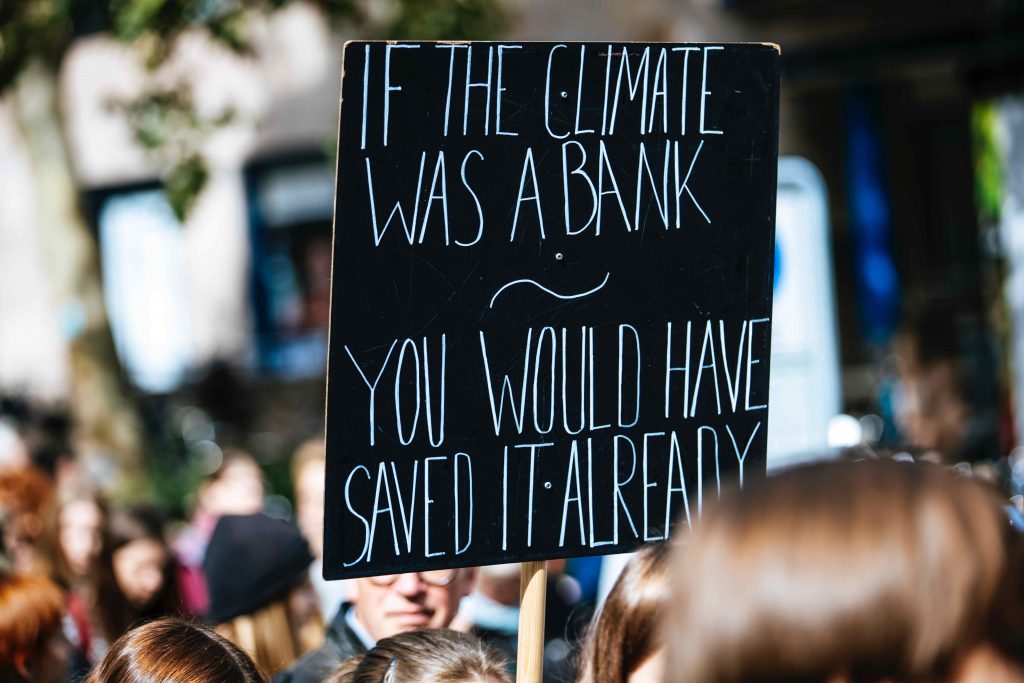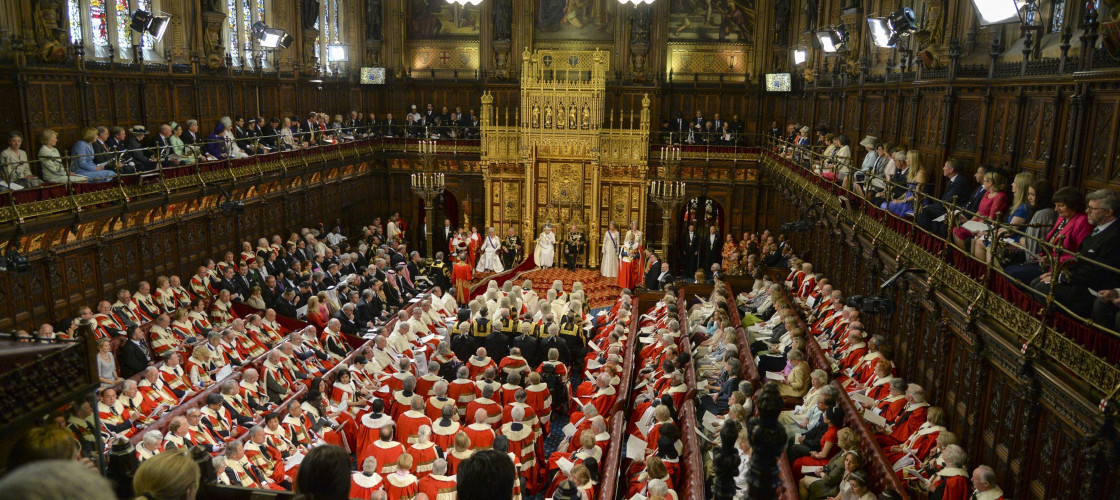The affluent world is confronted by a fundamental problem – climate change. The fossil-fuel lifestyle that keeps us warm, wealthy and distracted is altering the climate of the planet. If we continue on this trajectory, global society will be progressively more seriously afflicted by storms, floods, fires, permanent sea level rises, massive refugee migrations, changes in patterns of harvests (though not all bad, apparently) and extreme hot weather.

Significant concerns also arise from the release of methane from the Arctic ocean bed (where large amounts of the gas are frozen into ice as methane clathrate) and from the warming, decomposing tundra. Methane is a potent greenhouse gas, although its duration in the atmosphere is short (c.12 years) relative to carbon dioxide (’00s of years). Notwithstanding the short duration of methane, there is a risk that climate change will be boosted by a feedback loop of a warming Arctic releasing methane which further warms the Arctic causing further increases in the rate of release.
Yet no nation is taking significant actions to curtail air travel or car ownership. Action against suburban sprawl, specifically to reduce CO2 emissions, is pretty non-existent as far as I can observe.
Why is this? How can there be such indifference by the governments of affluent nation states to limit activities known to cause the bulk of CO2 emissions?
I believe there are two reasons.
Reason 1:
The installed park of fossil-fuel-based industrial plant cannot be simply shut down; that would destroy the global banking system. Let us say a company spends $1 Bn on a coal-burning power plant to be operated for 50 years. It is financed by a bond with an annual payment of $50 Mn and final payment of $1 Bn. However, after only a few years, the government orders the plant to be shut down and replaced with solar power. This means the bond holders are left holding toilet paper. They will no longer get $50 Mn per year, nor will they get $1 Bn in Year 50 (unless the government compensates them from taxation, which passes the burden from the bond holders to society; fine for a few coal plants, not so fine for replacing a whole industry).

Most people get pissed off if they expect $1 Bn and get nothing at all.
Imagine the same scenario played out thousands of times over as fossil-fuel power plant, refineries, transportation infrastructure, mining equipment and upstream oil&gas installations all get shut down. In 2018, the UN Climate Science Panel said that CO2 emissions would have to fall by 50% by 2030 to give the world a “reasonable chance” of avoiding the worst consequences of climate change. What would such a vast writing-off of assets do to the global banking system? And you must remember that not only is this existing equipment getting shut down, the banks are having to issue new finance to pay for the solar, nuclear, hydro, wind and associated infrastructure that must be installed to replace the old stuff.
So in summary, Reason 1 that not much is being done to slash fossil fuel use is that either a) it would hurt or destroy powerful institutions, or b) it would burden governments with vast compensation payments to shut down profitable enterprises. We could stop investing in new fossil-fuel plant, of course, and we can retire those assets that have surpassed their economic life. But that falls far short of what is recommended, and still wipes out a large industrial base of companies that supply new power plants, refineries etc etc.
Fact: in 2017, 87% of world primary energy came from fossil fuels. Just 2.1% came from renewable energy (BP Statistical Review of World Energy data).
Fact: Projections by the US Energy Information Administration (EIA) anticipate that renewables will not make significant impact on global energy supply, because the world’s growing demand for energy will vastly outstrip new supply from renewables. Of course, projections can be wrong, and frequently are (refer to International Energy Outlook 2019 with projections to 2050 on the EIA website). However, the tiny contribution achieved by renewables to date, and the daunting implications of retiring valuable assets, persuades me renewables cannot ‘save us from climate change’ by replacing fossil fuels.
Reason 2:
In my view, Reason 2 is actually the most potent in explaining government apathy towards climate change. I suspect few in the political class even begin to understand why they are constrained within a particular social contract. It is the social contract by which all countries have attained affluence (no exceptions). It is the formula of affluence reduced to its elements. Yet it is so little appreciated that few enjoying the comfortable, secure living standards of rich nations understand they are inside a bubble of delusion. Why would they want to understand that?
The social contract started to evolve in the nineteenth century as railways extended opportunities for travel to those who previously could not afford it. And higher incomes for the working classes meant more taxation from the working class: they could not be ignored totally. Then in the USA early in the twentieth century, the combination of a continental oil industry, the petrol engine and mass production yielded a social revolution: a new working class rich enough to afford things like private cars, mortgages, and foreign holidays. They could buy the same specification of petrol in New York as in Los Angeles, so they could travel where they liked without fear of running dry. What really gave the social contract of affluence a boost was the aftermath of World War Two, when economists were at their wits’ ends as to how to lift a world in ruins to the US lifestyle.

The answer was: transform the expectations of the people by advertising houses, cars, foreign holidays and cheap credit. Pump in lots of oil. Ignore all those children pulped by ‘adults’ playing with dangerous toys. Ignore the abuse of power required to secure the vast oil supplies devoured by affluence. Stamp on trade unions (US, UK) or else co-opt them into the boardroom (DE, CH). Extract resultant wealth via the stock market or equivalent concentration of commercial interest. This has been the foundation of the remarkable rise of living standards since 1945 in the countries that fought in WW2. Later, a few other countries joined the affluence club (notably Taiwan and Korea). After collapse of the Soviet Union, the club expanded vastly.

Stock markets have acted as magnifying glasses, focusing wealth into the pockets of those with the biggest pockets. For instance, an individual investing £1 in the UK stock market in 1980 would have seen their investment grow to between £20 and £60 by 2015 (depending on the investment strategy). Whereas, per-capita GDP only doubled (in real terms) or increased six-fold (nominal terms) in the same period. In effect, the stock markets are a gearbox for the already-wealthy to get richer at up to ten times the rate of the ordinary population. That is how the rich get richer. The more surplus wealth you have to invest, the faster you get even richer.

Of course, the people know they are being exploited. They see the mansions in the home counties, they know what top public schools cost, they see the Rolls-Royces and hear about the absurd salaries earned by those of only respectable ability… They know all about these things, but they put up with them provided they have compensations: a nice little suburban house with a garden, a car to support the illusion of power and freedom, and foreign holidays in places that once only Somerset Maugham and Ian Fleming could go. These palliatives salve a nondescript reality. Almost.
The social contract is almost never explicity stated. Mrs Thatcher was rare in being quite unabashed in her advice to Augusto Pinochet (who was baffled by the docility of the UK population under the yoke of the City). Let every couple have a decent home, let each home have a car, and you shall have a docile population. And so this has proved (well, most of the time).
The social contract is more readily observed through its action (and inaction). Is it coincidence that the most enthusiastic early proponents of ‘cars for the people’ were dictatorships? Factually, the first motorways (or whatever they call them in your country) were built in Italy, the Soviet Union and Germany. Ostensibly they had a military purpose, but Hitler in particular understood the political significance of ‘cars for all’. His regime made great efforts to produce a car cheap enough for ordinary families to afford. The reason it did not happen is because 1930s Germany just did not contain the extent of household wealth to provide a market for mass motorisation. Contrary to popular belief, no private German citizen received a Volkswagen prior to World War 2. However, working class Germans did enjoy cheap foreign holidays aboard Nazi liners in the Kraft Durch Freude program (Strength Through Joy).
Concerning inaction, one of the most extraordinary social phenomena of the last century has been the indifference of governments and their citizens to deaths by motor traffic. It is largely forgotten in ‘advanced’ nations today that once upon a time road deaths – especially of children – were routine personal experiences. Everyone knew someone who had lost a parent in a crash. Deaths of children were solemn but not exceptional events at school assembly. The UK escaped comparatively mildly, with ‘only’ 8,000 deaths at the maximum in the late 1960s. In France, the figure was 22,000. In West Germany, even higher, 25,000. So why did people put up with it? Why were juries so reluctant to condemn obvious cases of manslaughter? Rafts of specialist legislation have been passed in the UK in an attempt to rectify the situation, yet justice for victims of road crime remains elusive (I advise a visit to the website of Roadpeace if you wish further details).

The public reaction to the slaughter of the 1960s was repulsive; children lost their freedom. In a very few countries, notably the Netherlands, restrictions on car use were applied to protect children. But this was the exception. In the UK, freedom for children was largely a thing of the past by 1990. The (comparatively) low contemporary figure of 1,800 annual motor traffic deaths in the UK is in part due to this confinement of children. There have also been large declines in walking and cycling. This combination of government inaction and public indifference can only be explained by a tacit, degenerate social contract by which drivers are entitled to endanger, maim and kill in the course of enjoying their infantile delusion of power and freedom. In effect, affluent society is merely a bubble in which childish adults play with dangerous toys. When someone gets hurt, everyone looks the other way.
So there we have our modern situation. We have a problem of climate change, overwhelmingly due to the lifestyle choices of less than 10% of the global population (90% of the global population do not access the affluent lifestyle and therefore their contribution to climate change is rather limited). The problem has been well-analysed by scientific study and recommendations for the solution have been defined as targets for CO2 emission reduction. The application of these targets would certainly not harm anyone. On the contrary, it would greatly benefit public health if we lived in compact, flatted suburbs, eating a diet with little meat, and got about mostly by public transport, cycling or walking. Children would be free to roam again. It all sounds rather pleasant. As for restrictions on air travel, well, if X million people do not enhance their risk of skin cancer by lying on a beach, has that harmed humanity?
The prescriptions of meeting climate change do not appear overly punishing, given the consequences of doing nothing, so why are governments doing nothing?
Answer:
They would not be elected if they tried. In effect, the people block action on climate change through divide and rule of the political parties.
The UK is in a particularly invidious situation. We have a crackpot ‘first past the post’ voting system that enables minority interests to gain majority representation (that is the purpose of the crackpot system). In the 2019 general election, the Conservative (or Tory) party won the support of slightly less than 30% of the electorate, but returned 317 out of 650 MPs to the House of Commons to win an outright majority over a fragmented opposition. In effect, Prime Minister Boris Johnson can rule for the 30% without caring much about the wishes of the remaining 70% of the electorate. A further peculiarity of UK politics is that the Tory party has no real opposition. Scotland, Wales and Northern Ireland have in effect withdrawn from English politics by the evolution of their own nation-specific parties. Since the Labour party has never won a majority on the basis of the English electorate alone, from now on the only party likely to win a majority in the UK parliament is the Tory party.
I don’t think the UK electoral system is going to change any time soon!
The relevance of this exploration of UK politics is this: the Tories are the most right-wing of our parties. They are most eager to fulfil the social contract of affluence, and the least likely to heed the prescriptions of climate change. Why? Because the Tory party is the face of the ruling class who exploit the people and therefore it has the greatest commitment to maintaining the social contract of affluence: houses, cars, foreign holidays and cheap credit. Of all the parties, the Tory party manifesto is clearly the least mindful of the measures required to meet climate change. As this Friends of the Earth analysis shows, the Tory party are simply dismal. But they won the election!
In short, UK politics is simply not fit for purpose to deliver solutions for climate change. From what I have observed, the US is not rushing back into the Paris accord, Canada is not shutting its tar sands operation, Australia is not closing its coal mines, and China continues to weasel that as a developing nation it deserves an exemption. The only large economic block taking climate change at all seriously is the European Union, which has set targets out to 2050 and claims to be meeting the earliest target for 2020. Whether these fine aspirations will survive a projected doubling of air travel by 2040, or the ongoing mass playtime in motor cars remains to be seen. Personally, I doubt it.
Part 2 – what would a fit-for-purpose democracy look like? coming soon!




